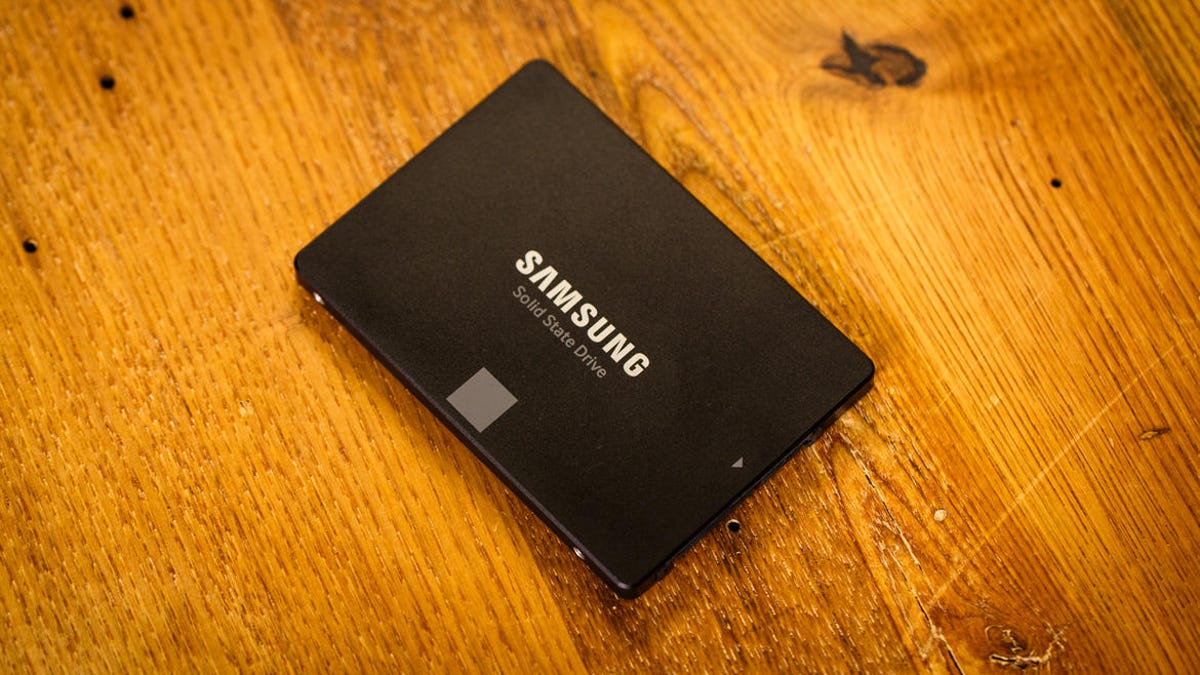Happy holiday shopping! Now here's your SSD price increase
With flash chip supplies tight, you won't get as many gigabytes for your money when buying a new PC, analyst firms say.

SSDs like Samsung's Evo line can store data faster than hard drives.
Want your next laptop to get the performance boost that comes with storing data on an SSD? You'll have to pay more for the privilege this holiday season and beyond.
SSDs, or solid state drives, store data on flash memory chips the same way your phone does. The approach can speed up your PC significantly when booting your computer, launching apps and storing files, so it's no surprise SSDs are pushing aside hard drives in computers.
But tight supplies on flash-memory chips mean SSDs, especially higher-capacity 512GB and 1TB models, are getting more expensive, according to price-tracking analysts.
That means you'll either have to pay a lot more for an SSD-powered PC, or suffer with a laptop that doesn't have as much room to store videos, photos, music and software as you might prefer. The eye-opening performance boost of an SSD-powered PC isn't so great when you need to lug around an external drive.
Specifically, SSD costs have increased 6 percent to 10 percent this quarter compared to the third quarter, TrendForce said in a Wednesday report. Those prices will increase further next quarter, too, the analyst firm predicted.
Good news for consumers looking for lower prices, though: more flash chips should hit the market a year from now, easing the supply constraints that increase costs. In particular, Samsung is pushing hard, according to the Sanford C. Bernstein firm.
"We expect substantial supply growth...in 2017 and 2018 powered first by Samsung's aggressiveness and followed by competitors playing necessary catch-up," Bernstein analysts Mark Newman and Ike Cho said in a report Wednesday.

